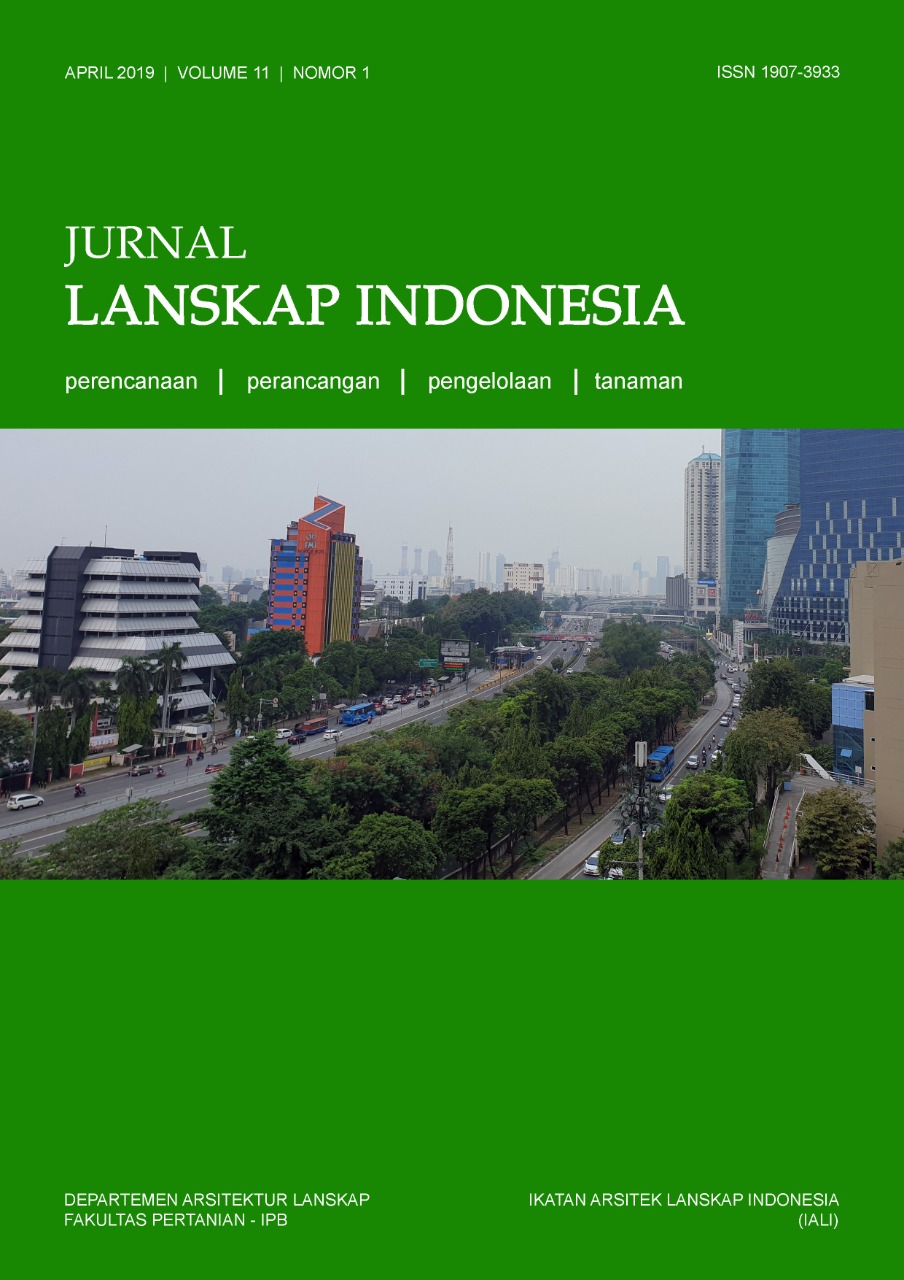Kajian <i>Place Dependence</i> Warisan Budaya Wujud pada Sumbu Filosofi di Kota Yogyakarta
Abstract
Yogyakarta City has a privilege in the history of the Mataram Kingdom relics either tangible or intangible. One of them is the philosophy axis. The philosophy axis is manifested in the form of a path that has historical objects as the elements of forming a city. The main elements are Tugu Yogyakarta, Malioboro Street, Zero Kilometer, and South Square is now being used in the open space of the city. The aims of this study were to examine the place dependence on the four historical objects with the respondents. The study has already done using qualitative and quantitative methods. The main of qualitative methods by distribution questionnaires involve the perception of natives, newcomers, and tourists as much as 327 respondents. Other qualitative methods were done by using a descriptive approach to the literature review and interviews, as well as field observation. Quantitative methods by using a non-parametric of different test with Mann-Whitney U for testing of perception between two samples. The results of this study, perception between the natives and newcomers was no difference. The results showed that place dependence obtained the doubtful value of 83.33%, the disagree value of 8.33% and the agreed value of 8.33%. The importance of place dependence as a recommendation in planning is the preservation of tangible cultural heritage and increasing the dimensions of place attachment in public space, especially the Zero Kilometer which has the weakest value. Finally, Yogyakarta City would be realized by UNESCO as one of World Heritage City about cultural heritage.
Keywords: historical objects, perception, place dependence, public space, tangible cultural heritage Diterima
Downloads
This journal permits and encourages authors to post items submitted to the journal on personal websites or institutional repositories both prior to and after publication, while providing bibliographic details that credit, if applicable, its publication in this journal. However, after the article is submitted and published in this journal, it is fully copyrighted by the Jurnal Lanskap Indonesia or JLI. If excerpts from other copyrighted works are included, the author must obtain written permission from the copyright owner and give credit to the source in the article. Then, the writer or reader is allowed to copy, share, and redistribute articles/material in any form. But it must still include the appropriate source and credit because the article in this journal is licensed by Creative Commons Attribution 4.0 International License (CC BY 4.0).
I. Proposed Policy for Journals That Offer Open Access
Authors who publish with this journal agree to the following terms:
- Authors retain copyright and grant the journal right of first publication with the work simultaneously licensed under a Creative Commons Attribution License that allows others to share the work with an acknowledgement of the work's authorship and initial publication in this journal.
- Authors are able to enter into separate, additional contractual arrangements for the non-exclusive distribution of the journal's published version of the work (e.g., post it to an institutional repository or publish it in a book), with an acknowledgement of its initial publication in this journal.
- Authors are permitted and encouraged to post their work online (e.g., in institutional repositories or on their website) prior to and during the submission process, as it can lead to productive exchanges, as well as earlier and greater citation of published work (See The Effect of Open Access).
II. Proposed Policy for Journals That Offer Delayed Open Access
Authors who publish with this journal agree to the following terms:
- Authors retain copyright and grant the journal right of first publication, with the work after publication simultaneously licensed under a Creative Commons Attribution License that allows others to share the work with an acknowledgement of the work's authorship and initial publication in this journal.
- Authors are able to enter into separate, additional contractual arrangements for the non-exclusive distribution of the journal's published version of the work (e.g., post it to an institutional repository or publish it in a book), with an acknowledgement of its initial publication in this journal.
- Authors are permitted and encouraged to post their work online (e.g., in institutional repositories or on their website) prior to and during the submission process, as it can lead to productive exchanges, as well as earlier and greater citation of published work (See The Effect of Open Access).



























